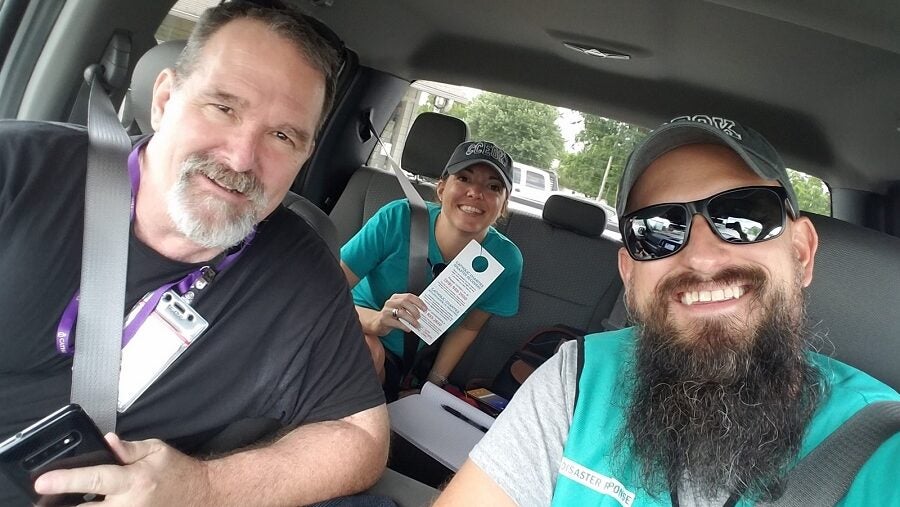
CCUSA provides Airbnb housing to disaster responders and survivors

Through its Open Homes Travel Credit program, Airbnb awarded Catholic Charities USA (CCUSA) with $75,000 in travel credits in 2019 to provide temporary housing to workers responding to a disaster and to people recovering from one.
CCUSA extended the travel credits to five Catholic Charities agencies that were responding to five different disasters: Northern Valley Catholic Social Services (The Carr fire in Redding, California), Catholic Charities Diocese of Santa Rosa (The Kincade fire in Santa Rosa, California), Catholic Charities of Eastern Oklahoma (Floods in Tulsa), Catholic Charities Archdiocese of Miami (Hurricane Dorian), and Catholic Charites Raleigh, North Carolina (Hurricane Florence).
In Tulsa, two deployment teams stayed in Airbnb-provided homes, which allowed them to assist Catholic Charities Eastern Oklahoma in responding to the urgent needs of people affected by flooding. The teams volunteered an estimated 450 hours which resulted in 1,348 clients receiving services. Volunteers conducted community outreach and performed client casework as well as other activities.
“Both teams brought their individualized experience and assistance to us in our time of great need,” said MaryLynn Lufkin, director of Disaster Relief for Catholic Charities Eastern Oklahoma. “It has really helped us get our feet under us as we move forward from this disaster.”
A single mother and her two children arrived in Miami in September 2019 after being evacuated from Grand Bahama because of Hurricane Dorian. They had no extra clothing or money, so they contacted Catholic Charities Archdiocese of Miami which provided 60 days of housing through the Airbnb Open Homes Travel Credit program. The two months of guaranteed shelter gave the woman enough time to find a job and save enough money to secure a rental apartment.
The funding from Airbnb was used to temporarily house 63 unique individuals for 2,538 overnight stays for disaster relief and recovery related needs. Thirty seven percent of the funds were used to house disaster survivors and 63% were used to house responders.








